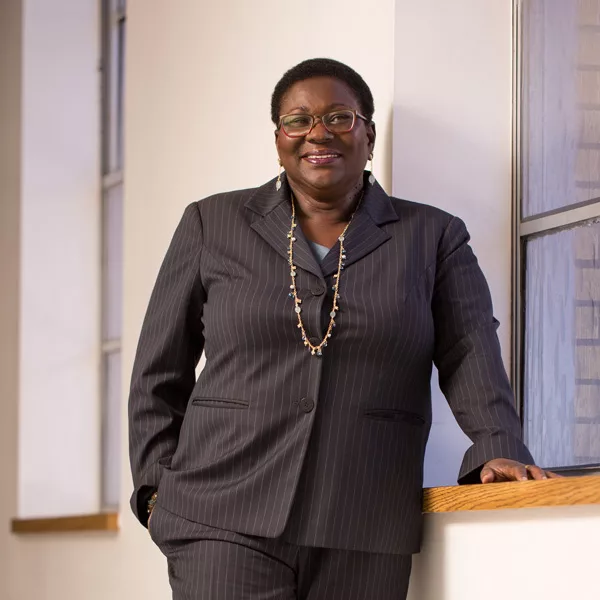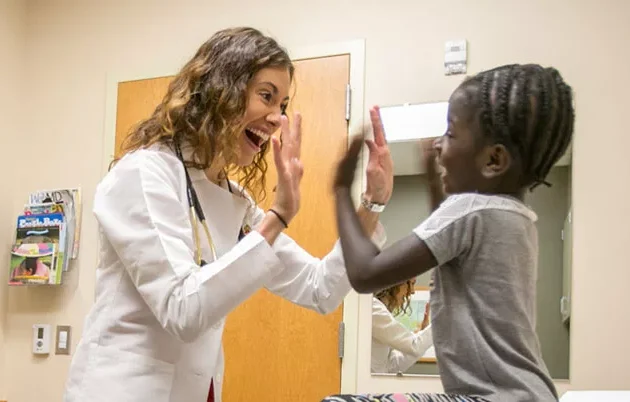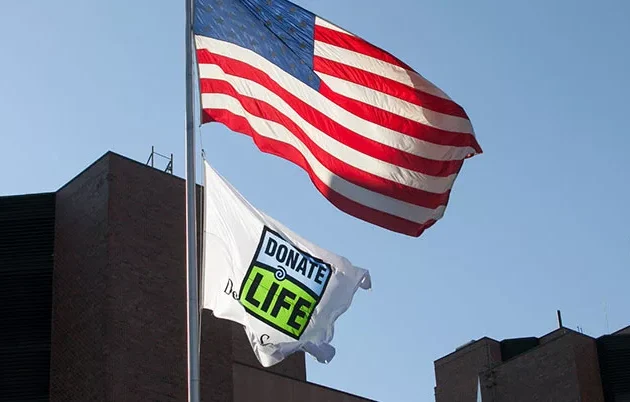The student hadn’t been a strong candidate going in and remembered Thomas, who is UTMB’s associate dean for career counseling and a professor of medicine in geriatrics. Today, that student graduated Alpha Omega Alpha, had a Step 1 score of more than 250, and is headed to Johns Hopkins, her first choice for a residency program.
“She knew that I understood she would be a great student,” Thomas recalls. “And she became one because of that faith, and because she knew she could be great.”
This is one of dozens of success stories Thomas can relate from her more than 15 years at UTMB — though initially those successes might have seemed unlikely. After all, when she accepted the position of associate dean for student affairs and admissions in 2001, UTMB’s medical school was facing challenges, including below-average passage rates on national board examinations.
But Thomas, who moved to Texas after 10 years as associate dean for minority affairs at the Medical College of Wisconsin in Milwaukee, laid an ambitious path to improve student recruitment, retention and timely graduation. When Thomas was the associate dean for student affairs and admissions, up to 90 percent of UTMB’s students passed their board exams the first time around, and the school led the nation in graduating the most diverse class of African-American and Hispanic medical students for several years.
Mirroring the gratitude that UTMB’s medical students show to her, Thomas credits her time attending the University of Wisconsin School of Medicine and Public Health for inspiring her success.
“I wanted to duplicate in Texas that same feeling of support, of being nurtured and cared about, and of having professors who are truly invested and interested in each student’s learning,” Thomas says. “And I wanted these students to have the same type of classmates I did, who were always there for one another.”
To that end, Thomas secured millions of dollars in grants to support medical research and education, believing, “if you provide the necessary resources then all students can succeed.” She garnered more than $19 million to strengthen pipeline programs for under-represented students and nearly $3 million in scholarships for economically disadvantaged students. She also bolstered UTMB’s academic support with peer-to-peer tutoring and by engaging faculty in board exam preparatory programs.
“My motto is: ‘Every student should be able to reach his or her maximum potential,’” she explains. “If you set expectations high, students will meet them.”
Thomas’s own high expectations were set growing up in Mississippi where her mother told her, “do something well or not at all.” Her early interest in the sciences, sparked by a love of nature, and in medical care — modeled in part by the fictional television character Marcus Welby, MD — gained new significance after she witnessed her young cousin’s drowning.
“I couldn’t understand why nobody could resuscitate him,” she remembers. “That was my driving force to always try to be helpful in the field of medicine.” At age 18, Thomas and her family moved to Milwaukee, where she earned a biology degree from Marquette University. Next, Thomas enrolled at the UW School of Medicine and Public Health, a place that confirmed her impression of medicine as a caring profession.
“Our professors were great intellectual teachers,” she says, listing one name after another as if reading them from a roster. “And the registrar, Ms. Isabelle Peterson, took a very clear interest in the students. She was someone you could go to in confidence and she would help you.”
But it was the students — especially the students — Thomas says, who modeled “the feeling of camaraderie and support” that she endeavors to impress upon her own students.
“My classmates were very warm and very giving of their time and effort,” she emphasizes.
Thomas herself was a student who “embodied that spirit” of fellowship, says Patrick McBride, MD ’80, UW School of Medicine and Public Health, the UW School of Medicine and Public Health’s former associate dean for students and its current director of alumni relations.
“It’s wonderful to see Lauree extending those same values to the next generation of physicians,” says McBride, also a professor in the UW School of Medicine and Public Health Departments of Medicine and Family Medicine and Community Health.
Thomas shares that enhancing student support has been one of her greatest accomplishments.
“I’ve really instilled in the students: You are not competing with one another, medicine is a caring and helping profession, and you really want to help your fellow students,” she exclaims.
It was “with great emotion,” Thomas says, that she left Madison for her residency in internal medicine at the former Mt. Sinai Medical Center (now Aurora Health) in Milwaukee, during which she served as president of the Cream City Medical Society.
About moonlighting in urgent care and working with communities in inner-city Milwaukee, she says, “I wanted the challenge of taking care of the sickest of the sick.”
Following her residency, Thomas practiced geriatrics for a decade at the hospital-based geriatric clinic at Mt. Sinai.
And to this day, she holds dear her collection of handmade blankets gifted to her from patients through the years.
“There is always gratification in helping patients,” Thomas says when asked what she most hopes to impart to her own students. “If they can enjoy taking care of people and ensure a good quality of life for their patients, then my purpose will be met by training and educating them.”


